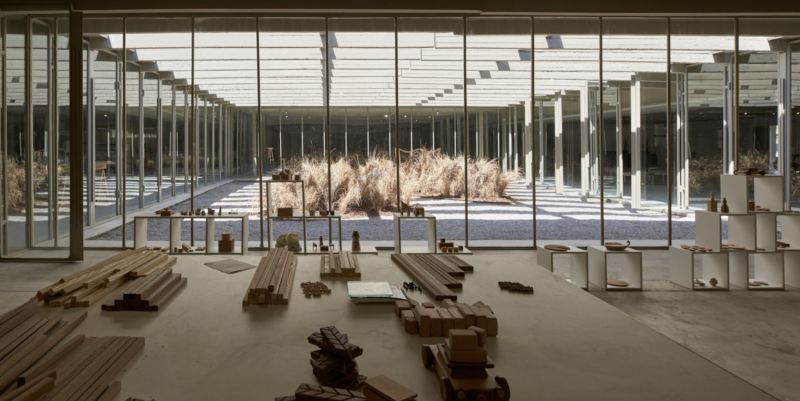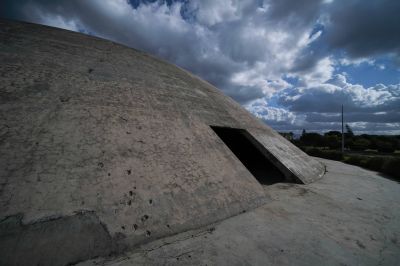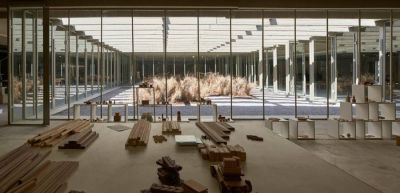
Central courtyard with the glazed partitions (Credit: Cemal Emden, courtesy of Aga Khan Trust for Culture)
BEIRUT — A project to renovate an abandoned pavilion on the grounds of the long-neglected Rachid Karami International Fair complex in Tripoli was one of the six winners of the international Aga Khan Award for Architecture.
The award, established by Aga Khan Development Network in 1977 “to identify and encourage building concepts that successfully address the needs and aspirations of communities in which Muslims have a significant presence,” according to a statement on the network’s website. The six recipients of the 2022 award, which was announced Thursday, will share a $1 million prize.
The project in Tripoli, which seeks to transform the fair pavilion into a production facility for the city’s woodworking and furniture making industry was commissioned by Expertise France — a French public agency working on international development projects — and designed by Lebanon’s East Architecture Studio. Their vision turned one of the abandoned structures at the Tripoli fair complex into “a design platform and production facility promoting Tripoli’s long-established, pioneering but latterly declining wood industry,” according to a statement from Aga Khan.
"I am grateful to the Aga Khan Award for Architecture, the Aga Khan Development Network and the Master Jury of this year’s award cycle for shedding light on the urgency to preserve our modern heritage and architecture’s capacity for healing and repair," Nicolas Fayad, a partner with East Architecture Studio, said in a statement to L'Orient Today.
The renovations to the pavilion include transparent steel-and-glass partitions that "echo the ceiling’s rhythmic structural grid, " locally-sourced wood paneling and custom-made lighting to complement the ceiling grid.
“The project has boosted the industry’s presence nationally and internationally, and spurred work on a conservation plan for the entire site,” according to the statement.
The Rachid Karami complex was designed by the famous Brazilian architect Oscar Neimeyer in 1962, with the intention of hosting international fairs that would welcome as many as 2 million people to the site. But construction stalled, first due to funding issues,then the outbreak of Lebanon’s Civil War in 1975 and the Syrian army’s occupation of the site.
In recent years, a number of proposals to redevelop the site have sputtered. Officials say tens of millions of dollars are needed to renovate the historic structure, some of which are in danger of collapse.
In 2018, the fair was placed on UNESCO’s World Heritage Tentative List as a “prime and representative exemplar of 20th century modern architecture in the Arab Middle-East.”UNESCO is currently working with a team of local and international experts to develop a plan for conservation of the site. Meanwhile, Tripoli was designated as the 2024 Capital of Arab Culture by the Arab League’s Educational, Cultural and Scientific Organization, a distinction that some are hoping will also help to breathe new life into the fair complex, including through an annual music festival to be held at the site.
The other winners of this year’s Aga Khan award were projects undertaken in Bangladesh, Indonesia, Iran and Senegal.
This article has been updated with a comment from Nicolas Fayad.

